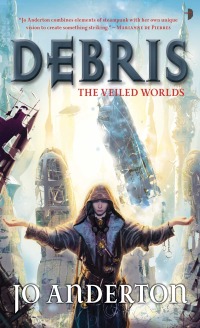Cain by José Saramago
 Tuesday, November 15, 2011 at 2:45AM
Tuesday, November 15, 2011 at 2:45AM 
First published in Portuguese in 2009; published in translation by Houghton Mifflin Harcourt on October 4, 2011
There is little need to summarize the plot of Cain because anyone with a passing knowledge of Genesis is familiar with much of it, although perhaps not with José Saramago's twisted (and infinitely more entertaining) version. Saramago imparts all sorts of useful information omitted from the original, including why people have navels and how the battle of the sexes began. We do learn more about Cain's life after the death of Abel than Genesis explains, including Cain's affair with Lilith, his intervention in Abraham's sacrifice of Isaac, and his visits to Sodom, Jericho, and the Tower of Babel. Cain becomes a sort of time traveler, bouncing from bible story to bible story and witnessing the obvious truth that god "can't bear to see anyone happy" before concluding that "The history of mankind is the history of misunderstandings with god, for he doesn't understand us, and we don't understand him."
Some readers might be put off by Saramago's unconventional writing style -- the absence of normal punctuation and capitalization -- but those who stick with it will find it easy to adapt. It's a quirky style that befits a quirky book. Cain's various conversations are nothing short of hilarious; punctuation would only get in the way of the rapid-fire exchanges.
Readers who don't appreciate irreverent humor might want to avoid this book. This is literature, not a guidebook to -- or a serious retelling of -- Genesis. Saramago's humor derives from the wicked application of common sense to familiar biblical lore, a technique that had me laughing from the first page, but one that might offend the more devout. In this version of biblical history, characters feel entitled to talk back to a capricious creator who deserves a good scolding. The god of this novel sometimes agrees that he's fallible, but doesn't want others to know of his faults. God knows he can't stop the sun but wants Joshua to pretend he did; angels show up late (a mechanical defect in the left wing throws one off course); the easiest way to deal with Satan is to throw him an occasional victim.
For those readers who have difficulty reconciling the notion of a wise and caring god with the petulant deity who turns a woman into a pillar of salt because she's curious, who tests loyalty by asking people to slay their children, who rains fire down upon the innocent, encourages the mass destruction of cities, and floods the earth because he's disappointed with his creation, this is the novel for you. Saramago's Cain is wholly unimpressed with the creator's sense of justice. He argues that the lord's ways aren't just mysterious but abhorrent. Viewed from the standpoint of a mere mortal, his argument makes good sense -- although Cain's moral authority to complain about god's murderous ways is dubious, at best. In the end, both the creator and the creation are deeply flawed. Those flaws make for a wonderfully funny novel.
RECOMMENDED



